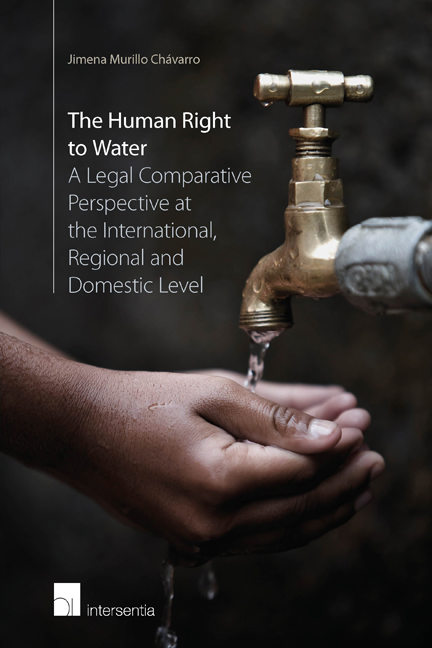 The Human Right to Water
The Human Right to Water Published online by Cambridge University Press: 15 December 2017
INTRODUCTION
Safe drinking water is indispensable for human survival. Nevertheless, a human right to water has not been explicitly incorporated in any of the international conventions on human rights. Due to the vital character of this resource, drinking water is an essential element for the realisation of a number of recognised human rights. In fact, some international conventions explicitly refer to drinking water as part of other human rights enshrined in those conventions.
The question that has emerged and been discussed in the last decades is whether access to safe drinking water should be guaranteed as an extension of other rights or whether it should be recognised as an independent right in itself. An independent right to water would provide a more comprehensive protection, and it would support other rights for which water is an essential element. An independent right to water would also protect all people, instead of particular groups, as proposed by the CESCR in General Comment 15.
This chapter focuses on analysing the implicit recognition of the right to water in international human rights conventions, to determine from which rights it derived. The mechanisms for monitoring compliance with the international human rights conventions, reporting procedures and complaints procedures will also be examined. Reports submitted by state parties, particularly concerning the four states under study, on the measures adopted for the implementation of the international human rights conventions can serve to illustrate which rights might incorporate access to drinking water. Compliance procedures are a useful tool to understand which rights are deemed to be violated by lack of access to safe drinking water.
RECOGNITION OF THE RIGHT TO WATER
This section focuses on analysing whether the human right to water is recognised in international human rights conventions. On the one hand, the most recent conventions on human rights adopted under the auspices of the UN, with the exception of the Convention on Enforced Disappearance, explicitly mention access to drinking water. On the other hand, interpretations of the rights embedded in the different international human rights conventions, may indicate that the human right to water is implicitly recognised therein.
To save this book to your Kindle, first ensure no-reply@cambridge.org is added to your Approved Personal Document E-mail List under your Personal Document Settings on the Manage Your Content and Devices page of your Amazon account. Then enter the ‘name’ part of your Kindle email address below. Find out more about saving to your Kindle.
Note you can select to save to either the @free.kindle.com or @kindle.com variations. ‘@free.kindle.com’ emails are free but can only be saved to your device when it is connected to wi-fi. ‘@kindle.com’ emails can be delivered even when you are not connected to wi-fi, but note that service fees apply.
Find out more about the Kindle Personal Document Service.
To save content items to your account, please confirm that you agree to abide by our usage policies. If this is the first time you use this feature, you will be asked to authorise Cambridge Core to connect with your account. Find out more about saving content to Dropbox.
To save content items to your account, please confirm that you agree to abide by our usage policies. If this is the first time you use this feature, you will be asked to authorise Cambridge Core to connect with your account. Find out more about saving content to Google Drive.